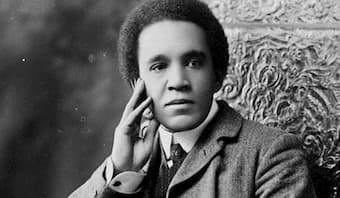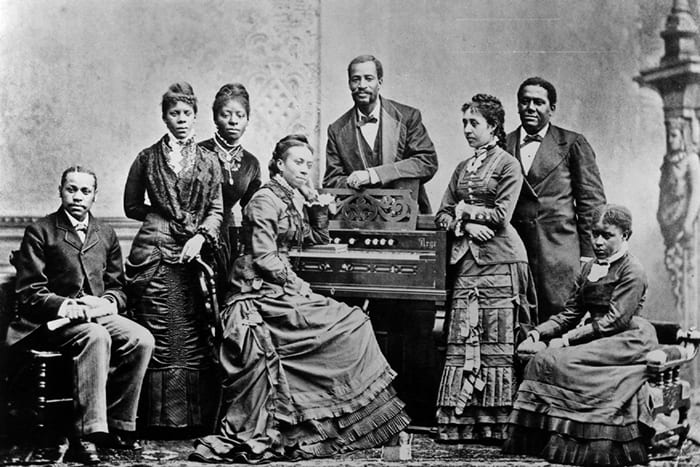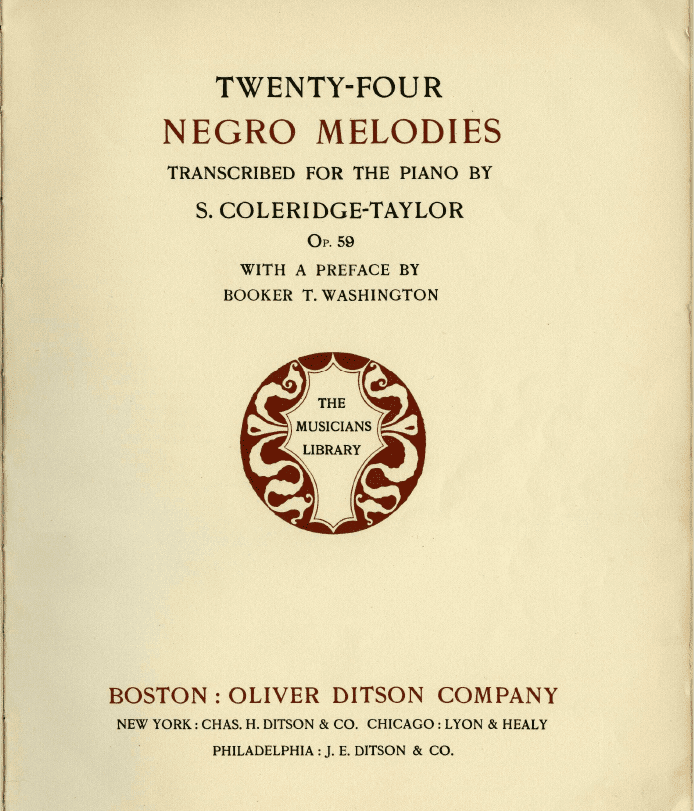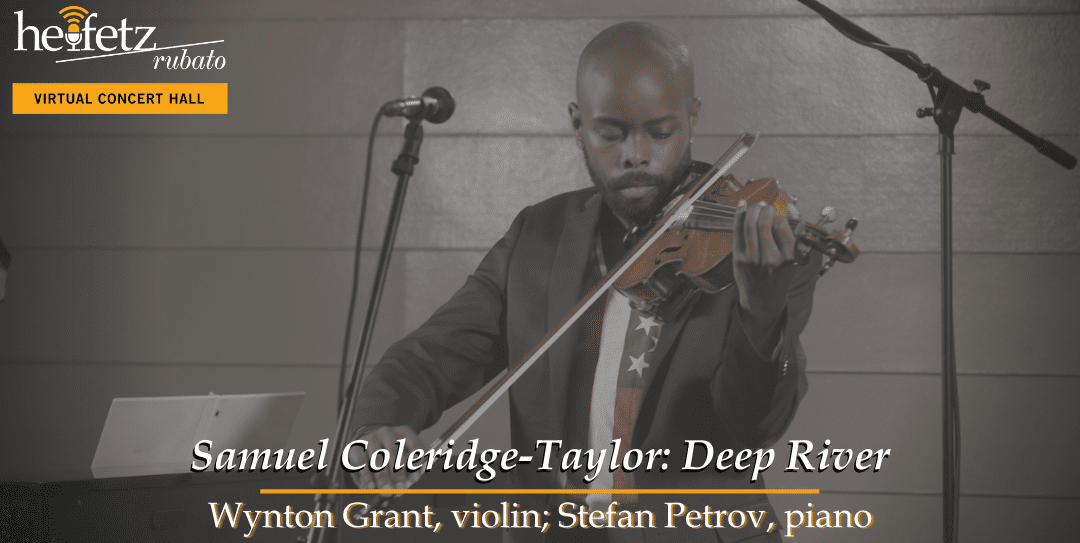
Self-described “Anglo-African” composer Samuel Coleridge-Taylor (1875-1912), son of a doctor from Sierra Leone and an English mother: “Mr. Coleridge-Taylor has written much, has achieved much. His work, moreover, possesses not only charm and power but distinction, the individual note. The genuineness, depth and intensity of his feeling, coupled with his mastery of technique, spontaneity, and ability to think in his own way, explain the force of the appeal his compositions make.” – Booker T. Washington
Our #AlumniMonday series of stories and performances about our distinguished alums today kicks off Black History month with a selection by Samuel Coleridge-Taylor, a celebrated composer born in London in 1875 to an English mother and an African father. His father had been bound for America on a rogue slave ship until intercepted and diverted to England by the British Navy.
Growing up in Great Britain, which had abolished slavery in 1833, Coleridge-Taylor encountered both racism and opportunity – as a young virtuoso violinist and budding composer, he became a top student at the prestigious Royal College of Music.
Part African, part English, Coleridge-Taylor’s music reveals many strands of influence. One of the turning points of his life came in 1896, when he heard the touring Fisk Jubilee Singers chorus from Nashville, Tennessee, where he first heard traditional African-American spirituals. The music – and the literature (Coleridge-Taylor called W.E.B. DuBois’s 1903 book The Souls of Black Folk “one of the best books I have read by any author, white or black,”) drew the composer to America, where he was celebrated as a conductor and performer on three tours. His first tour in 1904 even included being the first man of color ever invited to the White House, where he was famously – and to some, scandalously – welcomed by President Theodore Roosevelt.


The Fisk Jubilee Singers, on tour in 1900. Based at Fisk University in Nashville, the Singers popularized spirituals around the globe.
After his tour, Coleridge-Taylor picked up his composing pen and created a series of 24 Negro Melodies for violin and piano, writing in the preface, “What Brahms has done for the Hungarian folk music, Dvorak for the Bohemian, and Grieg for the Norwegian, I have tried to do for these Negro Melodies.”
Violinist Wynton Grant, joined by pianist Stefan Petrov, offers some poignant remarks to precede his performance of Deep River at the storied home of another President – Founding Father James Monroe, the nation’s 5th President – at the Heifetz Institute’s Annual Independence Day concert at Monroe’s Highland estate in Charlottesville, VA.


“What Brahms has done for the Hungarian folk music, Dvorak for the Bohemian, and Grieg for the Norwegian, I have tried to do for these Negro Melodies.” – Samuel Coleridge-Taylor


